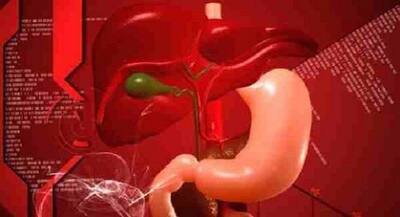Don’t Miss Out on the Latest Updates.
Subscribe to Our Newsletter Today!
New therapy promises hope for alcoholic liver disease patients

Alcoholic liver disease is the leading cause of liver related deaths globally. But a new therapy may soon be able to offer relief to patients.
There is good news for alcoholic liver disease patients. A new therapy may be effective in successfully treating this disease. According to researchers from the University of California San Diego School of Medicine, they have, for the first time, successfully applied phage therapy in mice for alcoholic liver disease. The study is published in Nature.
Alcohol damages liver cells. But it also diminishes natural gut antibiotics. This promotes bacterial growth in the liver and exacerbates alcohol-induced liver disease. Researchers in this study successfully linked a specific bacterial toxin to worse clinical outcomes in patients with alcoholic liver disease. They moreover found a way to break that link by precisely editing gut microbiota with phages.
What are phages?
Bacteriophages, or just phages, are basically viruses that destroy bacteria. Researchers in early 20th century experimented with phages to see if it can be used to treat bacterial infections. But with the discovery of antibiotics, phages were delegated to the sidelines. Now, with increasing antibiotic-resistant infections, phage therapy is back in favour. In fact, according to researchers, a few patients with 'life-threatening multidrug-resistant bacterial infections have been successfully treated with experimental phage therapy after all other alternatives were exhausted'.
Also Read
Gut bacteria contribute to liver damage: Study
In this study, researchers tried to find out how gut bacteria contributes to liver damage? They also tried to see if phages can be used to reduce the bacteria and thus alleviate alcoholic liver disease?
During the course of the study, researchers discovered that liver cells are injured by cytolysin, a toxin secreted by Enterococcus faecalis.This is a type of bacteria typically found in low numbers in a healthy human gut. They saw that people with alcoholic hepatitis have more cytolysin-producing E. faecalis in their guts than healthy people. The more E. faecalis present, the more severe their liver disease.
For people with alcoholic liver disease, more than five per cent of their faecal bacteria were Enterococcus, compared to almost none in healthy people or people with alcoholic use disorder. Approximately 80 per cent of alcoholic hepatitis patients have E. faecalis living in their faeces, and 30 per cent are positive for cytolysin.
Moreover, the researchers found that nearly 90 per cent of cytolysin-positive patients with alcoholic hepatitis died within 180 days of hospital admission. This is as compared to approximately 4 per cent of cytolysin-negative patients. Based on this finding, researchers concluded that 'detection of the cytolysin-gene in faeces from patients with alcoholic hepatitis could be a very good biomarker for liver disease severity and risk of death'.
Phage therapy may successfully treat alcoholic liver disease, say experts
This study was conducted on mice. Researchers transferred faeces from cytolysin-positive and cytolysin-negative people with alcoholic hepatitis to mice. They saw that mice with cytolysin-positive humanised gut microbiomes developed more severe alcohol-induced liver disease and survived less than mice without cytolysin.
Then researchers isolated 4 four different phages from sewage water. These specifically target cytolysin-producing E. faecalis. They then treated the mice with the phages and saw that it killed the bacteria and cured alcohol-induced liver disease. Control phages that target other bacteria or non-cytolytic E. faecalis had no effect. However, researchers say that though this is promising in mice, further studies are needed before it can be used successfully on humans.
What is alcoholic liver disease?
This is nothing but the result of excessive alcohol abuse. It damages the liver, causes a build-up of fats, inflammation and scarring. This condition leads to death so it needs timely measures to rectify it. This is because any damage to the liver affects the whole body. Usually, the liver can heal itself. But repeated abuse over time takes away its ability to do so. Alcoholic liver disease is the leading cause of all liver-related deaths globally.
Symptoms of alcoholic liver disease
Some early signs of alcoholic liver disease may be abdominal pain, nausea and vomiting, diarrhoea and a loss of appetite. Ad the disease progresses, symptoms may change to swelling of the lower limbs, jaundice, itchy skin, ascites, fever and shivering, weight loss. You will also experience general weakness and poor muscles strength, blood in vomit and stools, unexplained bruises and sensitivity to alcohol and drugs.
Treatment of alcoholic liver disease
Up-to 75 per cent of patients with severe alcoholic hepatitis, the most serious form of alcoholic liver disease, die within 90 days of diagnosis. The condition is usually treated with corticosteroids. However, this is not a very effective treatment procedure. Getting a liver transplant at the earliest may lead to a cure. But this procedure is available in very few centres and is available to only a few patients. In fact, according to the American Liver Foundation, only about 8,000 liver transplants take place in the United States every year. This is when the waiting list comprises of almost 4,000 people.
What you can do to prevent alcoholic liver disease
As we have already mentioned earlier, alcoholic liver disease is the main cause of all liver-related deaths across the world. To avoid this condition, you need to moderate your alcohol intake. If you already have a liver problem, then abstinence is the only solution for you. Go for regular check ups and take the medications that your doctor prescribes. He may also recommend certain lifestyle changes. Listen to him and follow his advice. In severe cases, you may have to go in for surgery.


